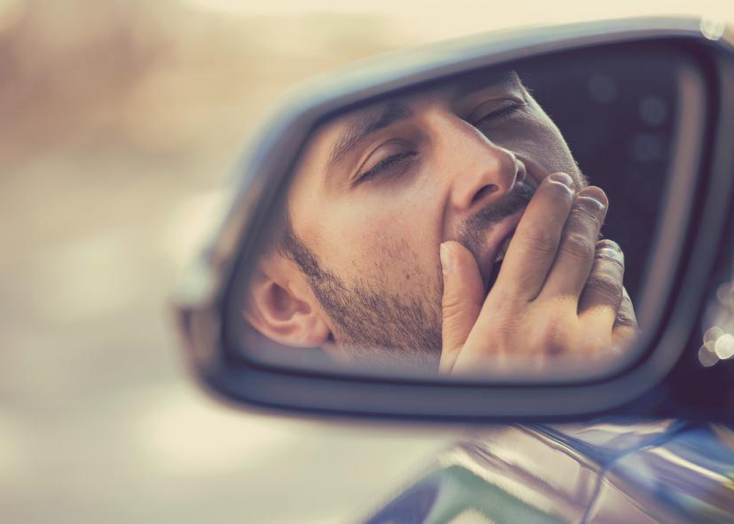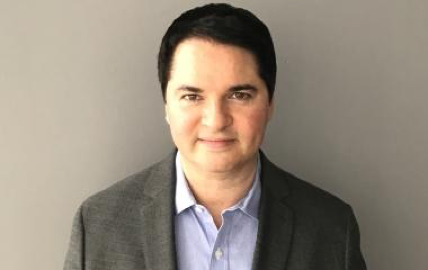Generation Stress
Researchers at the University of Chicago recently did a deep dive into our sleep patterns over time and found that we are clocking one to two hours less than we did 60 years ago.

MILLENNIALS MAY SPEND MORE TIME IN BED BUT THE QUALITY OF THEIR SLEEP IS ANOTHER STORY.
Researchers at the University of Chicago recently did a deep dive into our sleep patterns over time and found that we are clocking one to two hours less than we did 60 years ago. In fact, we’ve lost an entire hour since the 1970s—logging an average of 6.1 hours of sleep per night. At the rate we’re going, we’ll be down to just four hours a night by the end of the century—a nation in a rudderless daze.
It would make sense to assume that the youngest generation gets the least amount of sleep—fast-food pig-outs before bed, frequent happy hours, and occasional all-nighters are never conducive to winding down. Not only that, Millennials, aged 18-34, now outnumber Gen X and Baby Boomers— at 75.4 million and counting.
Though it’s true they’re the ones ranting on Twitter when they’re lying awake at 2 a.m., according to the U.S. Bureau of Labor Statistics, Millennials in fact bank about 25 more precious minutes of sleep each night than both Gen Xers and Baby Boomers. But there’s a rub: While they are spending more time in bed, the quality of that time is another story. As it turns out, their eight or nine hours aren’t always restful, or restorative.
Stress keeps many Millennials up at night.
According to the American Psychological Association Millennials are experiencing more stress than any other generation—and are less able to manage it. Thirty percent of working Millennials have general anxiety, and 61 percent of college students regularly feel anxious. And it’s keeping them up at night.
One third of those between the ages of 18 and 33 say they can’t sleep because they’re “thinking of all the things they need to do or did not get done.” To put this into perspective, only 19 percent of Gen Xers and 13 percent of Baby Boomers report ruminating over to-do lists and stressing about jam-packed schedules as regular inhibitors to a restful night’s sleep.
It seems then, for a generation that places a premium on work/life balance, sleep remains the elusive piece of the puzzle.
That’s not to say that past generations weren’t searching for this balance, but it looked much different. Whereas once, it meant clocking out at 5 p.m. to head home for dinner with the family, Millennials are more likely to intertwine their personal and professional lives. They’ll head to a spin class during lunch, do a little online shopping and check their social media at work, but they’ll also answer a phone call from their boss at 9 p.m. and send a client email on a Saturday.
The ‘always on’ generation has trouble winding down.
“Millennials are history’s first ‘always connected’ generation. Steeped in digital technology and social media, they treat their multi-tasking hand-held gadgets almost like a body part—for better and worse,” reported Pew Research Center. “More than eight in ten say they sleep with a cell phone glowing by the bed, poised to disgorge texts, phone calls, emails, songs, news, videos, games and wake-up jingles.”
The downside to being connected 24/7 is a chronically active mind, and the health implications are tangible: the inability to power off increases stress levels, fueling an uptick in mood disorders like depression and anxiety, both of which have been linked to disruptive sleep. By the same token, sleep deprivation has been shown to fuel anxiety—and a vicious cycle ensues.
If work-life balance is, in fact, the Holy Grail, Millennials might want to figure out ways to break the cycle, as those who sleep more, and better, consistently reported a higher quality of life. Lack of sleep not only screws up our body clocks, degrades our wellbeing and contributes to anxiety, it also (not surprisingly) leads to decreased work performance. And what bright, ambitious Millennial wants that?
Whether at work or play, the lesson for digital natives may be this: ignore the importance of disconnecting at your own peril. Learn to unplug so you don’t unravel.
Need help powering off? Here are a few tips.
Disconnect an hour before bed.
Turning off TVs, computers, and smartphones is a challenge for many people, but it’s essential. Screens and sleep are profoundly incompatible. Not only do electronics exacerbate stress, they emit disruptive blue light. “The eyes detect and associate blue light with daylight. The blue light travels via cells to the hypothalamus, which then shuts down the production of melatonin, an important sleep-promoting hormone,” said Dr. Robert Rosenberg, DO, FCCP, author of Sleep Soundly Every Night, Feel Fantastic Everyday. Besides benefiting your body’s natural rhythms, unplugging will ease the shift from action-oriented energy of daytime to the more relaxed, inward-focused energy of sleep.
Put your worries on paper.
“Too many people take their worries into the bedroom, which makes falling asleep very difficult,” said Dr. Rosenberg. And it’s an endless cycle: anxiety affects sleep quality and is exacerbated by poor sleep. “[What’s called] constructive worrying can help alleviate any escalating stress symptoms. In the evening [carve out time] to make a list of your problems or worries. Then put the list in a drawer. No need to act [on anything].” Getting the worries out of your head and onto a sheet of paper, where you can see them, acknowledge them, and let them go is often enough to calm the mind.
Practice meditation.
It’s ironic that the always-on generation are also the ones who’ve taken mindfulness mainstream, even bringing it into the workplace. Meditation, which has been shown to reduce stress levels when practiced regularly, is about quieting the mind and cultivating calm by focusing on the breath. It’s not about shutting out thoughts, it’s about acknowledging them and then letting them go. A study published in JAMA Internal Medicine found that a mindfulness meditation practice improved both sleep quality and daytime impairment due to fatigue. Meditation also plays a regulatory role in sleep, influencing brain and bodily functions that mediate changes in various behavioral states, including sleep.
Skip the stimulants.
If you’re running on fumes, a nightcap may seem like the perfect sleep aid—and an enjoyable one at that. But while a drink may initially make you drowsy, when the body starts metabolizing the alcohol, it triggers the release of stress hormones, and your sleep becomes fitful at best. More likely you’ll wake up in the middle of the night dehydrated, and thirsty.
The idea isn’t to skip happy hours with friends, or the free-flowing booze at work events, but as a rule of thumb try to avoid alcohol consumption 4 to 6 hours before bedtime. And of course avoid caffeinated foods like coffee, tea, soda and dark chocolate, which are stimulants and can also disrupt sleep.

